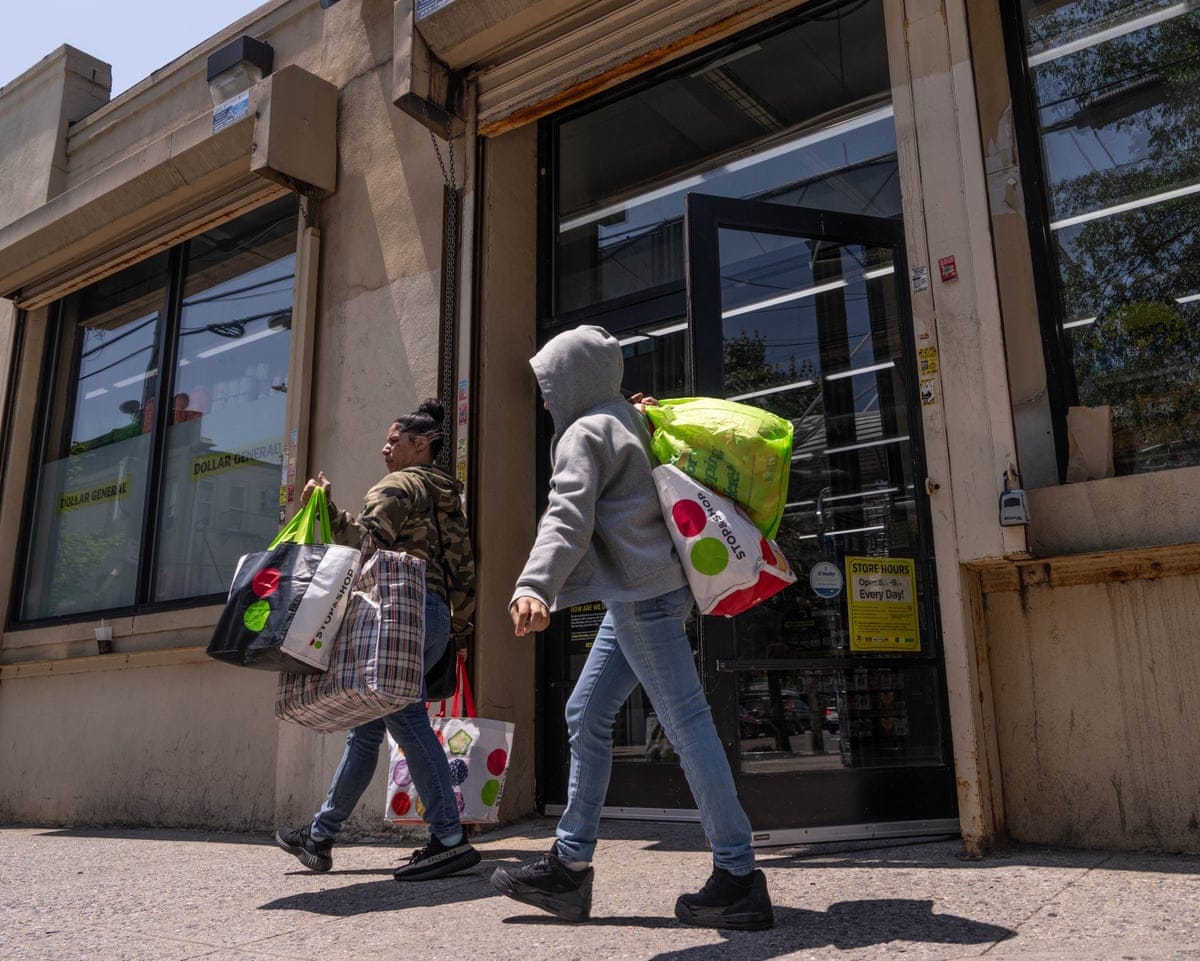Shoppers Feel the Strain of Rising Prices Amid Trade Disputes
On a scorching July day in New York City, customers at Queens’ largest mall noted another kind of heat—rising costs on everyday items.
“Basic t-shirts, underwear, essentials—everything is getting more expensive,” said Clarence Johnson, 48, who stopped by the Macy’s at Queen Center mall to collect shirts he ordered online.
As trade tensions persist under the current administration, retailers have been adjusting prices to offset higher costs. Department stores, which depend on imported goods ranging from footwear to clothing, have faced particular challenges in managing fluctuating expenses.
At Macy’s, signs displayed throughout the store advertised discounts of up to 60%—even near high-end jewelry items. Yet some shoppers said prices remain unaffordable.
Nydia Olvera, 61, said shopping at Macy’s is usually beyond her budget, but she still checks the clearance section. “They used to sell t-shirts for three dollars. Now, I pay $7 to $9 for one,” she said.
A recent analysis by DataWeave revealed that prices for footwear, apparel, and bags rose sharply between January and June. Footwear costs increased by up to 4%, while clothing prices climbed nearly 2% in the same period.
Further price hikes remain uncertain. The White House is negotiating with multiple countries that could soon face tariffs as high as 40%. Initially set for early July, these tariffs are now expected to take effect on August 1.
Last week, officials announced an agreement with Vietnam, the second-largest producer of apparel, footwear, and accessories after China. Under the deal, Vietnamese exports will face a 20% tariff—half the proposed 46% rate introduced earlier this year. However, goods from other nations, including China, shipped through Vietnam will be taxed at 40%.
While retail executives called the agreement an improvement over earlier proposals, costs for businesses are still expected to rise. Macy’s recently lowered its earnings projection, citing uncertainty over tariffs. Its stock price has fallen 25% this year.
In May, Macy’s CEO Tony Spring indicated that while some prices would remain stable, others would increase, forcing the retailer to share part of the burden with customers. Executives from Nike, Target, Best Buy, and Walmart have made similar statements.
Nevertheless, retailers are also shouldering some of the financial impact. During a May earnings call, Macy’s CFO Adrian Mitchell noted that while the company had secured some supplier discounts, rising costs remain a challenge.
Read next

Ryanair plane had only six minutes of fuel upon Manchester landing, records show
Flight Narrowly Avoids Disaster After Storm Diversion
An inquiry has been launched after a Ryanair flight, struggling against severe winds during storm Amy last week, landed at Manchester Airport with only six minutes’ worth of fuel remaining.
The aircraft had been transporting passengers from Pisa, Italy, to Prestwick, Scotland, on

"Qantas customer data for 5 million exposed as hackers release info post-ransom deadline"
Hackers Leak Personal Data of 5 Million Qantas Customers on Dark Web
A cybercriminal group has released personal records of 5 million Qantas customers on the dark web after the airline did not meet their ransom demand.
The breach is part of a larger global incident affecting over 40 companies,

Investors flee record-high UK stocks as EU set to hike steel tariffs
Investors Withdraw Record Sums from Equity Funds Amid High Market Valuations
Data reveals that investors in the UK have withdrawn an unprecedented amount of money from equity funds over the past three months, driven by concerns over soaring stock market valuations.
According to the latest figures from Calastone, the largest

